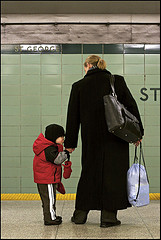 The Wall Street Journal reports on how high school proms have now ‘landed’ in England, to the dismay of many. The article describes how middle-class kids in England are ‘moved by American tv’ and push for their own proms, which often end up being over the top and ‘gaudy,’ according to the authors
The Wall Street Journal reports on how high school proms have now ‘landed’ in England, to the dismay of many. The article describes how middle-class kids in England are ‘moved by American tv’ and push for their own proms, which often end up being over the top and ‘gaudy,’ according to the authors
The article draws upon the expertise of sociologist Amy Best.
“Proms in the U.S. began in the 1930s, the invention of teachers trying to help young people make the transition to adulthood, says Amy Best, a sociologist and expert on youth culture at George Mason University in Fairfax, Va. The dances largely fell out of fashion in the 1960s but came back in the 1980s and remain popular, she says.”
The trend…
“Proms began crossing over to the United Kingdom several years ago and keep growing in popularity. Ricky Turrell, a photographer in southeast England, has 54 proms booked this year. Proms are practically a daily occurrence somewhere or other in England from May 1 till well into July.”
“Tom Kendall, 16, says American TV shows such as ‘The O.C.’ and MTV’s ‘My Super Sweet 16’ provide a ‘fairy tale’ view of dances and parties that British teens like. ‘The O.C.,’ a Fox show now in reruns on Britain’s E4 channel, chronicles the life of affluent teens in Orange County, Calif. ‘My Super Sweet 16’ airs nearly every day in Britain, showing teens preparing for lavish birthday parties.”



 A
A 